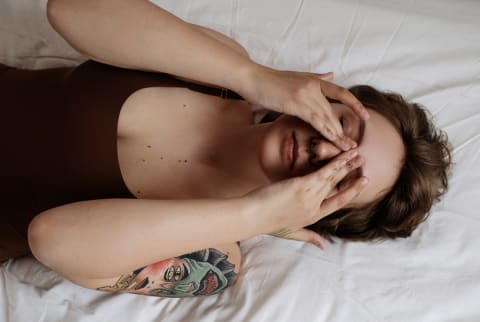Oura’s 2022 Global Community Data report shares that Oura ring wearers’ average sleep score drops to 72 out of 100 on NYE, compared to 78 on the highest-scoring sleep days (which, by the way, tend to happen in March and April). It’s no surprise that we find it tough to get to bed after a holiday that for all intents and purposes starts at midnight. The combination of booze, social excitement, late-night food, and wonky schedules doesn’t do our sleep quality any favors. —Psychologist & sleep specialist Wendy Troxel, Ph.D., in this article —Biohacker Dave Asprey in this article —mbg vice president of scientific affairs Ashley Jordan Ferira, Ph.D., RDN, on this episode of the mindbodygreen podcast —Holistic psychiatrist Ellen Vora, M.D., in this article —Neuroscientist Tara Swart, M.D., Ph.D., in this article “One of my big issues with how sleep is portrayed in our current culture is the idea of perfection, that you ’need’ to get optimal sleep quality and duration every single night. But the reality is that this is not possible for the vast majority of people. There’s variation from night to night, and that’s normal… I aim for five nights a week (at least) where I’m content with my sleep, which helps reduce the idea of perfection. If I get those five nights a week of good sleep, I’m happy.” —Clinical psychologist & sleep specialist Shelby Harris, PsyD, DBSM, in this article Emma received her B.A. in Environmental Science & Policy with a specialty in environmental communications from Duke University. In addition to penning over 1,000 mbg articles on topics from the water crisis in California to the rise of urban beekeeping, her work has appeared on Grist, Bloomberg News, Bustle, and Forbes. She’s spoken about the intersection of self-care and sustainability on podcasts and live events alongside environmental thought leaders like Marci Zaroff, Gay Browne, and Summer Rayne Oakes.



